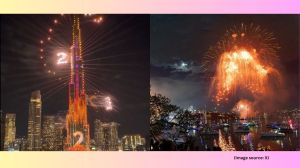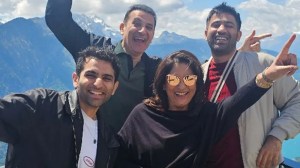Wordly benefits: Balkanization is on
Balkan is a Turkish word meaning ‘mountain’. Comprising 11 countries besides parts of Greece and Turkey, there is no universal agreement on the region’s components.
 The noun form is balkanization. It implies fragmentation of ethnic groups and derives its meaning in part from the compartmentalization brought about by the mountainous relief of the region.
The noun form is balkanization. It implies fragmentation of ethnic groups and derives its meaning in part from the compartmentalization brought about by the mountainous relief of the region.
While nation building is a formidable task, creating one appears to be a lot easier, particularly in a region with centuries of conflict and divisiveness. So in the past couple of months, we have seen two self-proclaimed nations coming up, both in the Balkan Peninsula. In April came the Republic of Liberland, proclaimed by Czech Republic politician Vit Jedlicka, between Croatia and Serbia with an area of 7 sq km and motto ‘to live and let live’. A month later, a Polish tourist proclaimed the Kingdom of Enclava in the same region with an area of 1 sq km. Only the Vatican (0.44 sq km) is tinier than the youngest nation so far.
There has been something in the history and the location of the peninsula, also called the Balkans, which explains fragmentation as the recurring trauma of the region. Balkan is a Turkish word meaning ‘mountain’, and the peninsula is dominated by this landform, especially in the west. Comprising 11 countries besides parts of Greece and Turkey, there is no universal agreement on the region’s components.
Called the tinderbox of Europe, the Balkans have, throughout history, witnessed endless military, cultural, and economic mixing and clashing between Europe and Asia, Christianity and Islam, Catholicism and Orthodoxy so much so that by the end of the second decade of the 20th century the word balkanize ensconced itself in the English dictionary.
It means ‘to divide (a country or region) into smaller sections that fight among themselves. The noun form is balkanization. It implies fragmentation of ethnic groups and derives its meaning in part from the compartmentalization brought about by the mountainous relief of the region.
Well, I am getting into the habit of throwing in a lagniappe. Here’s another word, an uncommon one, which derives its meaning from the name of a place. Billingsgate is the largest inland fish market in the UK. References made to it in the 17th century indicate that language used there was most abusive. So, billingsgate means foul, scurrilous or abusive language.
- 01
- 02
- 03
- 04
- 05































